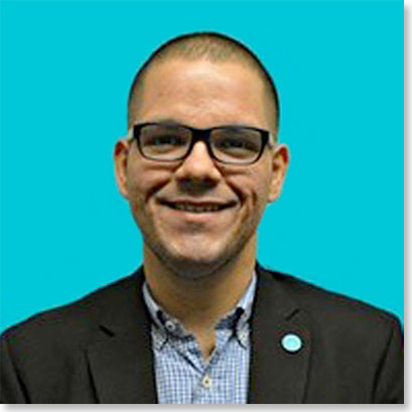|
The Pandemic and the Protests Make It Clear: Schools Cannot Ignore the Nation’s Unwavering Anti-Blackness ... And Their Own Commentary by Julio Angel Alicea Los Angeles, California
These words ring as true today as they did in 1903, when sociologist W.E.B. Du Bois originally wrote them in The Souls of Black Folk. Du Bois was discussing the birth of his first child, and how from that moment, his son existed in the “Land of the Color-Line” where a “Veil” kept Blacks from Whites. The “Veil” is powerfully described by Du Bois as almost a murderous specter descending upon his baby like a “shadow” that will follow him, ensuring his membership in a “hunted race.” And hunted his son was; barely two years into his life, he died from a bacteria-based infection. Years later, Du Bois and his wife would blame their son’s premature death on anti-Black medical disparities. Du Bois’s reflection underscores the fundamental threat that anti-Blackness and the “color-line” continue to pose to Black children in the United States. Such a threat has received newly-minted media attention as COVID-19 ravages Black communities from South Central LA to South Florida; as police officers and their surrogates rob those same Black communities of their fathers, their sisters, and their “essential workers.” Being a non-Black educator and researcher of color, I want to do my share of the emotional labor to speak out and offer ideas on what schools can do in these painful times. First and foremost, educators, policymakers, and school leaders must take stock of the overwhelming collection of barriers and threats to Black youth across the country. A recent report from UCLA’s Center for the Transformation of Schools found that Black students in LA County experience higher rates of asthma, food insecurity, lead in the blood, and childhood hardship than any other racial group. These numbers are worse behind the “Veil” in areas like South Central, where the lead blood content of children is nearly three times the county average. When linked to the COVID-19 deaths, these injustices are depoliticized as “underlying health conditions,” rather than what they really are: the cumulative impact of anti-Black conditions. In her op-ed, Sociologist Sabrina Strings argues that slavery, not obesity, is the reason behind the anti-Black COVID-19 disparities. We must take stock of these systemic realities because they don’t just go away when Black children come to school. In most cases, Black children face additional anti-Black conditions, ranging from racist math problems about picking cotton to an underrepresentation of Black teachers to persistent over-punishing of Black bodies (including in George Floyd’s Minnesota). So what can schools do? Where can they begin to make in-roads on a problem that continues to fuel this nation’s relative prosperity? The changes will need to be both big and small, cultural and economic. Culturally speaking, schools need to stop treating Black children as problems. They also need to stop ghettoizing Black curricula to the month of February, or even worse, to one week in that short month. And no, being “progressive” doesn’t make a school automatically pro-Black or exempt from critique. Anthropologist and former teacher Savannah Shange demonstrated as much in her study of a San Francisco high school whose approach to racial solidarity, in her words, “cannibalizes black suffering” by equating all racial oppression with the specific oppression of anti-Blackness. Moreover, schools must also prioritize diversifying their staff and commit to naming, undoing, and repairing the specific harms of anti-Blackness. In my own research in South Central, I have witnessed anti-Blackness manifest even in schools with a strong Black Student Union. What that told me is that the adults were not doing enough. Economically, schools, along with all three levels of government, must properly invest in Black communities. A global pandemic should not be the catalyst for Blacks to be deemed deserving of basic resources like hot meals, internet access, and discounted mental health services. The Movement for Black Lives launched a comprehensive policy platform in 2016 entitled a “Vision for Black Lives” that is worth revisiting. That document provides the political playbook that we all need right now, that we have needed since at least 1619. Many of the items in the platform speak directly to schools, including the call for:
More recently, a national agenda to address the disparities of COVID-19 has been added. Included is a proposal for decarceration, targeted relief packages for Black communities, and expanded healthcare and housing access for all. Julio Angel Alicea, M.A.T., previously taught social studies at a public high school near Providence, RI. He is currently a PhD Candidate in Urban Schooling at UCLA, where he also works for the Center for the Transformation of Schools at UCLA. His dissertation research focuses on the politics and pedagogies of race and place in South Central Los Angeles. |
||||||
If you have any thoughts on this or would like to contribute to an ongoing discussion in the  What is New? || Affirmative Action || Art Changes || Autonomy: Chiapas - California || Community Images || Education Rights || E-mail, Opinions and Discussion || En español || Essays from Ireland || Global Eyes || Healthcare || Human Rights/Civil Rights || Piri Thomas || Photo of the Week || QA: Interviews || Region || Rural America || Search || Donate || To be notified of new articles || Survey || In Motion Magazine's Store || In Motion Magazine Staff || In Unity Book of Photos || Links Around The World NPC Productions Copyright © 1995-2020 NPC Productions as a compilation. All Rights Reserved. |


